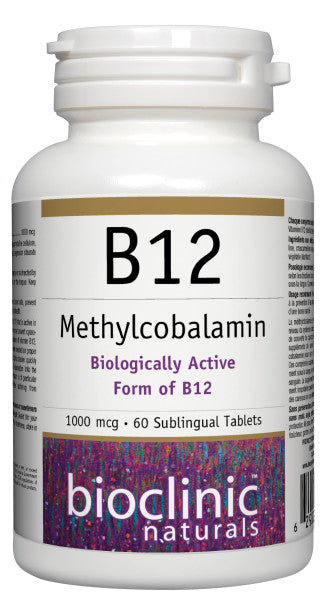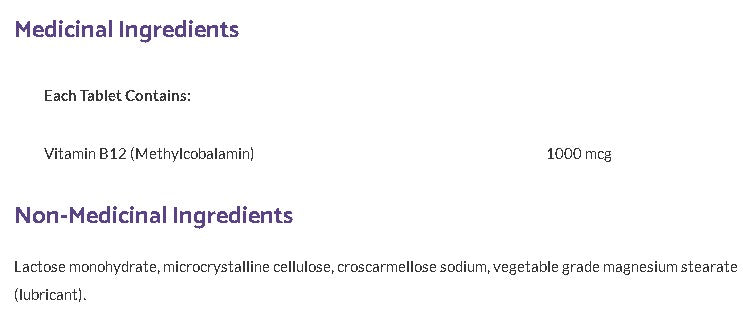



B12 Methylcobalamin · 1000 mcg
- 11.99$
0.00$- 11.99$
- Unit price
- per
Description
x- Methylcobalamin is the active form of vitamin B12 for maximum benefit.
- Higher bioavailability than the most common form, cyanocobalamin, which does not convert to sufficient methylcobalamin to correct some forms of anemia, neurological defects, and aging1.
- Reduces homocysteine levels for protective effects on the cardiovascular system
- Sublingual tablets provide rapid action directly into the bloodstream.
Vitamin B12 is a cofactor in enzymatic reactions with various physiological functions. It is required for the conversion of methylmalonyl CoA to succinyl CoA, as well as for the conversion of homocysteine to methionine by methionine synthase, which is then converted to S-adenosylmethionine. B12 deficiency leads to deficiencies in both of these pathways, disrupting neurological function, including poor formation of myelin sheaths, production of toxic levels of homocysteine, and inefficient energy production in all cells.
Methylcobalamin, the major circulating form of B12 and the one transported to peripheral tissues, has been shown to reduce not only homocysteine, but also inflammatory factors and carotid artery plaque volume in stroke patients, as well as pain and neuropathy in diabetics. Because of its relationship to myelin production and neurological function, high-dose B12 has been used in a variety of neurodegenerative diseases, including Parkinson's disease, amyotrophic lateral sclerosis, and multiple sclerosis.
Some people, particularly those with malabsorption or low dietary intake, are at higher risk of B12 deficiency. People with poor B12 absorption rely on passive absorption, which is typically 1% of the amount ingested. Therefore, higher doses may be necessary for people with higher B12 needs, such as the elderly and those with neurodegenerative disorders.
Produits recommandés
Produits récemment consultés
- Choosing a selection results in a full page refresh.



